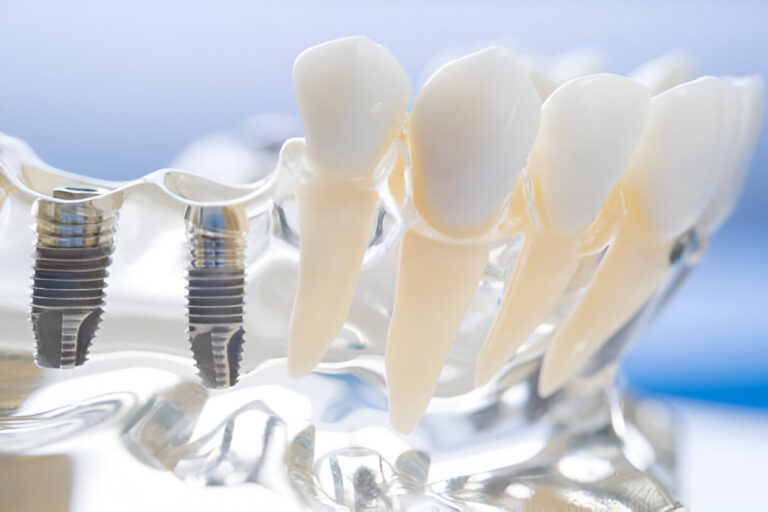Key Takeaways
- With several health advantages, dental implants provide a long-term remedy for missing teeth.
- Budgeting for dental implants can be made easier by being aware of the aspects that affect the price.
- Comparing costs and options can lead to significant savings.
- Overall, oral health impacts eligibility and longevity of dental implants.
What Are Dental Implants?
Dental implants revolutionize the way we look at tooth replacement. They offer a durable, high-quality option that mimics the natural look and function of the teeth. Implants are a basis for permanent or removable replacement teeth and are made of titanium posts that function as tooth roots. This process involves surgically inserting the posts into the jawbone, where they fuse with the bone through osseointegration, ensuring they stay securely in place. This renders implants one of the most stable solutions for replacing missing teeth. Those offering affordable dental implants by Palm Beach County help make this advanced dental procedure accessible to more people.
Benefits of Dental Implants
Beyond just filling gaps, dental implants provide many benefits that improve oral health. A key advantage of these methods is the prevention of bone loss. Because it is no longer stimulated, the underlying jawbone deteriorates when teeth fall out. Implants function like tooth roots by stimulating the jawbone and stopping future deterioration. Additionally, implants support facial structures, avoiding the sunken appearance that can occur with missing teeth. This helps with aesthetics and improves one’s ability to chew and speak clearly, significantly enhancing quality of life.
Factors Affecting the Cost of Dental Implants
A variety of factors can influence the pricing of dental implants. Foremost among these is the number of implants required; multiple implants naturally increase the cost. Bone density also plays a critical role—patients with insufficient bone may require a bone graft, adding to the overall expense. Geographic location is another substantial factor, as dental service costs vary between urban and rural areas. According to WebMD, material quality, dentist experience, and the technology employed are further factors that can heavily influence the cost.
Ways to Save on Dental Implants
Given the varying costs associated with dental implants, exploring avenues for financial relief is crucial. Dental insurance can sometimes cover some expenses, especially when implants are medically necessary. It’s wise to contact your insurance provider to understand your coverage. Numerous dental practices offer financing options that break the total cost into more manageable monthly payments. Dental discount plans might also be beneficial, providing reduced rates on dental procedures for a membership fee. Additionally, comparing prices between different clinics can yield significant financial benefits.
Comparing Alternatives
Dentures and bridges are common choices for those considering options beyond implants, each with unique pros and cons. While dentures are cost-effective upfront, they may lack the stability and comfort of implants and typically require regular adjustments or replacements over time. Bridges can bridge the gap left by missing teeth but often involve preparing adjacent healthy teeth, which could compromise their structure. In comparison, implants avoid affecting surrounding teeth and offer a more permanent solution, justifying their higher initial investment in the long run.
Impact of Overall Oral Health
Successful dental implants significantly hinge on the patient’s oral health. Conditions like gum disease must be under control before implants can be placed. Good oral hygiene, involving regular brushing, flossing, and dental check-ups, underpins the success of implants. Proper oral care reduces the risk of infection around the implant site, fostering a healthy environment for the implant to bond with the bone. The longevity of implants is directly tied to ongoing oral health maintenance, making it essential for patients to remain diligent about their dental care routine.
Preparation and Recovery Tips
Preparation for dental implant surgery is just as necessary as the procedure itself. Patients are advised to follow a specific pre-surgery diet and avoid certain medications as instructed by their dentist. Post-surgery, it is crucial to adhere to recommended care practices. This includes maintaining a soft food diet for the initial healing period and closely following all oral hygiene instructions provided by the dental team. Giving the body time to rest and heal is vital, as it helps expedite recovery and leads to more successful implantation outcomes.
Frequently Asked Questions
Q: Are dental implants painful?
A: While there can be some discomfort during and after the procedure, most patients find that the pain is minimal and manageable with medication. Advances in dental technology and anesthesia have significantly reduced the pain associated with implants.
Q: How long do dental implants last?
A: With proper care and regular dental visits, dental implants can last many years—often a lifetime. Their longevity depends on the patient’s oral hygiene and overall health.

